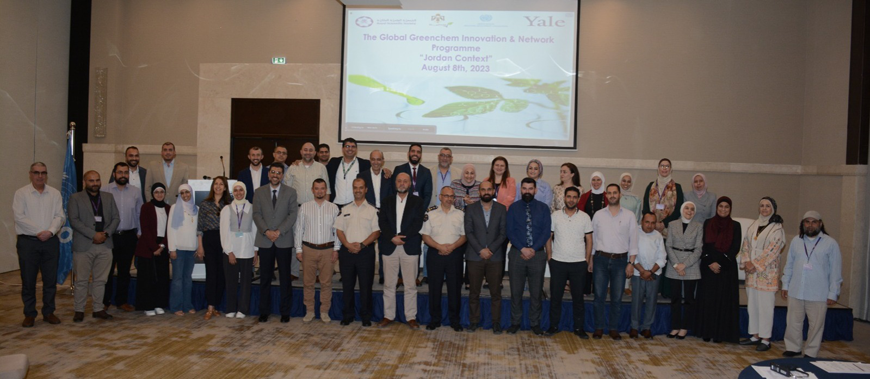You are here
Kingdom updates plan to eliminate persistant organic pollutants
By Hana Namrouqa - May 09,2018 - Last updated at May 09,2018
AMMAN — Jordan is reviewing and updating its National Implementation Plan (NIP) to eliminate and restrict new persistent organic pollutants (POPs), which are organic chemicals toxic to humans and wildlife, according to environment and sustainable industrialisation experts.
The review and update of the NIP is part of Jordan’s commitment to its obligation as a party to the Stockholm Convention on POPs, which the country signed and ratified in 2004, according to Mohammed Khashashneh, head of the Hazardous Waste Management Directorate at the Environment Ministry.
The convention is a global treaty to protect human health and the environment from chemicals that remain intact in the environment for long periods, become widely distributed geographically, accumulate in the fatty tissue of humans and wildlife and have harmful impacts on human health or on the environment, according to the Stockholm Convention website.
Initially, 12 POPs have been recognised as causing adverse effects on humans and the ecosystem and they were placed in three categories, including certain pesticides, industrial chemicals and by-products, according to the convention’s website, which indicated that between 2009 and 2017, the Conference of the Parties adopted amendments at its meetings, adding sixteen new chemicals to the Stockholm Convention.
The fact that new POPs had been added over the years to the convention necessitates the update of each party’s NIP, Khashashneh underlined.
“The update of the NIP will entail carrying out a national survey on Jordan’s inventory of newly-added POPs, identifying priorities of dealing with the new POPs, action plans for eliminating or restricting new POPs — a process that entails institutions' participation — and the cost of eliminating or restricting the production, use, release and disposal of new POPs,” Khashashneh told The Jordan Times.
Khashashneh, who heads the presidency of the 2017-2019 session of the Conference of the Parties of the Stockholm Convention on POPs, noted that not all of the identified POPs are found in Jordan, underlining that the country has already eliminated the presence of some of the POPs.
“Jordan is free from the first twelve POPs and is now working on eliminating the presence of the ones that can be found,” he said, noting that Jordan shipped in late 2016 its inventory of POPs to France for safe disposal at special treatment units.
The convention’s website indicates that exposure to POPs can lead to serious health impacts including certain cancers, birth defects, dysfunctional immune and reproductive systems, greater susceptibility to disease and damages to the central and peripheral nervous systems.
The plan, scheduled to be ready and finalised in October this year, according to Khashashneh, is being reviewed and updated in cooperation with the United Nations Industrial Development Organisation (UNIDO).
Sulafa Mdanat, UNIDO country representative, said that POPs are global pollutants emitted from different sources, such as agricultural activities, industrial processes and waste treatment processes, noting that as the Stockholm Convention has added some chemicals to the list of POPs, the national plan with its relevant action plans needed to be updated.
“The updated NIP is expected to contribute to reducing adverse impacts of the global pollutants on human health and ecosystem in the country and beyond,” Mdanat said.
UNIDO and the Environment Ministry organised earlier this week a workshop to kick start activities of the update and review of the NIP.
“We are extremely happy to partner with the Ministry of Environment on yet another initiative which is funded by the Global Environment Facility. As a specialised agency, UNIDO has a mandate that focuses on promoting inclusive and sustainable industrialisation and fostering innovation,” Mdanat highlighted.
Related Articles
AMMAN — Jordan has been elected president of the Conference of the Parties of the Stockholm Convention on Persistent Organic Pollutants betw
AMMAN — The Royal Scientific Society (RSS) launched the “Global GreenChem (GC) Innovation & Network Inclusion Programme”, which aims to
AMMAN — The Ministry of Environment is in the process of formulating the first plan on nanotechnology to identify and regulate its applicati
















